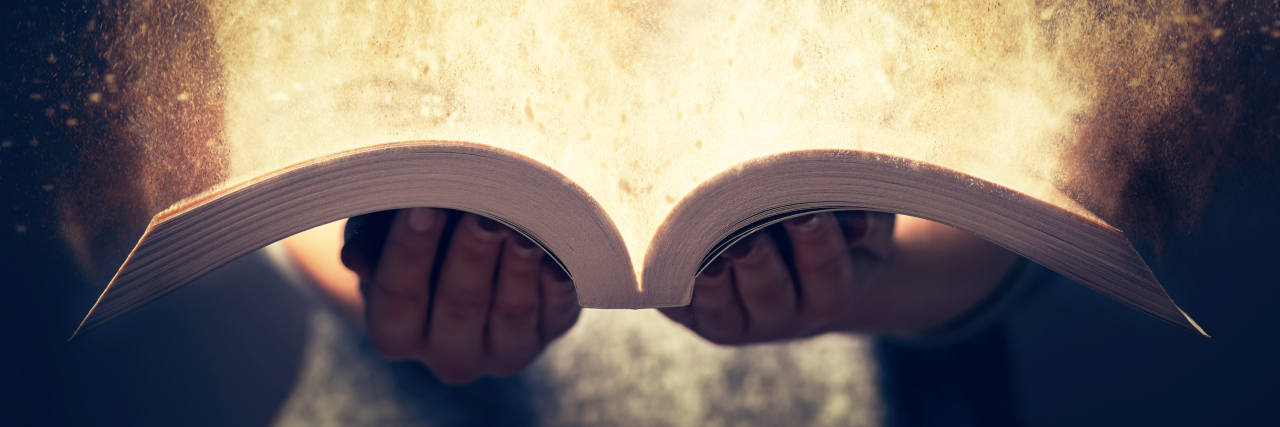I recently started reading a book called, “To Be Gifted and Learning Disabled.” This book talks about students, as well as adults, who have both a disability — the main examples are learning disabilities, autism, ADHD, and generalized anxiety disorder (GAD) — and traits of giftness, high intelligence, or talents. However, there are certainly other disabilities and health (mental or physical) challenges that can make someone fall into this category.
I sought out this specific book suspecting that I may be considered 2e, or twice exceptional. As I read on, I learned that I am indeed twice exceptional. Learning that there are names for what I experience certainly helps me understand my own mind and world better.
How do I know I am 2e?
I am twice exceptional because of the unique combination of my gifts and my challenges.
I will start with the disabilities. I have struggled with undiagnosed ADHD, auditory processing disorder (a learning disability), as well as OCD, generalized anxiety disorder, and mild sensory processing disorder since childhood. These disabilities have been with me forever, despite receiving diagnoses as an adult.
The reason in which these disabilities were diagnosed so late, not until both college and the workforce, is because of my traits of giftedness that mask them. For some individuals, their giftedness masks their disability, while others may have their disability masking their giftedness.
I am gifted in the sense that I have a “superior” verbal IQ (with the my full scale IQ being “average”). I have always been interested in books and writing, with a strong imagination. As a child, I would sometimes play pretend by myself, writing stories in my mind. As a teenager and adult, I have taken to creative writing. I use my imagination everyday as I create poems, novels, and short stories in my graduate creative writing program, also known as a Master of Fine Arts.
Essentially, as a child I would struggle greatly with math and science, as well as staying focused on tasks that were either challenging or boring to me. However, as I said before, I had a rich inner world.
I also struggled, and still do struggle, with listening. This is because of not only attention issues, but auditory processing issues. As an adult, I acquired more mental health issues, such as PTSD or bipolar, making concentration and engaging in conversation even harder.
I am hardly able to calculate a tip at a restaurant without pulling out the calculator on my phone. I don’t watch much TV, as I struggle to listen and focus. I have to stay active in order to keep my mind moving, or in other moments, slow it down. However, I have the gift of creating characters from the inner workings of my brain, an ability to create beautiful similes and metaphors, amidst character dialogue.
I may have done poorly on math standardized tests and spanish and french listening tests when I was younger (I even failed my freshman college math class the first time) because of my auditory processing issues or my struggles with numbers (this can sometimes indicate another learning disability, called dyscalculia, a math disability. I do not have that as an official diagnosis, but I certainly do have traits), but today none of that matters because I know I can bank on my ability to write and communicate, as well as use my vast imagination.
I made it through elementary school and high school with good grades (I lived in another country for middle school and didn’t do as well then). However, this doesn’t cancel out the fact that it took me longer than my peers to tell time and count money, or even tie my shoes. Perhaps these delays were a part of my premature birth, or maybe they are simply part of my learning and sensory challenges.
My disabilities may have also been disguised because I have the inattentive type of ADHD. In other words, I was rarely hyperactive in class, with the exception of getting in trouble for talking. Often girls with inattentive type ADHD go under the radar, as do twice exceptional kids, who grow up to be twice exceptional adults, wondering how they made it this far and what exactly is off about them.
I am happy to know this about myself, for I continuously strive in work, school, and social settings, to do my best, despite the challenges that I have. I also use my gift of writing, imagination, and creativity, to feel good about myself and succeed in all settings I am a part of.
Whether or not you relate to the concept of being “twice exceptional,” everyone I feel has a talent, regardless of if they are disabled in other ways or neurotypical. The term twice exceptional explains my entire childhood, as well as my present struggles with ADHD, Auditory processing disorder, Sensory processing disorder, OCD, and other mental illnesses. It also explains the fact that I’ve always felt a little different and out of sorts in school, despite being a typical ‘good student.’
I recommend this book to anyone who wants to learn more or possibly relates, or has a twice exceptional child. I also recommend nurturing your gifts, for I feel everyone has something they can do well or feel passionate about.
Photo credit: NiseriN/Getty Images

